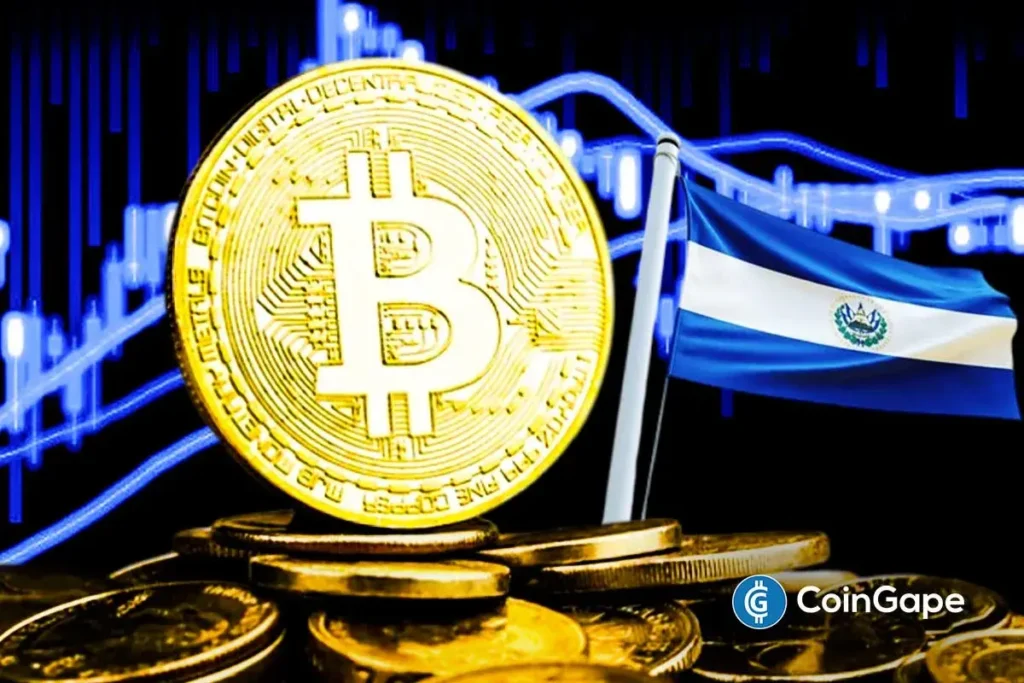El Salvador’s Bold Bitcoin Strategy: A Record Purchase Amid Market Challenges
In a surprising turn of events, El Salvador has made headlines with a significant investment in Bitcoin, purchasing over $100 million worth of the cryptocurrency despite a downturn in the market. This groundbreaking transaction, which saw the acquisition of 1,090 Bitcoin in a single day, marks the largest single-day purchase by the country since adopting Bitcoin as legal tender. With this latest addition, El Salvador’s total Bitcoin reserves have climbed to approximately 7,474 BTC, translating to a value of around $676 million. This bold move by the government highlights El Salvador’s unwavering commitment to its Bitcoin strategy, which it has maintained since officially adopting the cryptocurrency in 2021.
A Sustained Commitment to Bitcoin Accumulation
The recent purchase was confirmed by El Salvador’s Bitcoin Office and publicized by President Nayib Bukele, who has been a vocal advocate for the use of Bitcoin in the country’s financial strategy. Since November 2022, the nation has promised to buy one Bitcoin daily, reinforcing its intent to build a substantial reserve of this digital asset. Stacy Herbert, Director of the Bitcoin Office, emphasized that the government’s regular acquisitions aim to enhance financial independence, reducing reliance on traditional banking systems and the U.S. dollar. This approach sets a precedent, as El Salvador was the first country in the world to adopt Bitcoin as legal tender, paving the way for its citizens to engage with cryptocurrency on a national level.
Navigating Market Volatility and IMF Concerns
Despite El Salvador’s ambitious Bitcoin plans, the International Monetary Fund (IMF) has expressed concerns regarding the country’s high exposure to the cryptocurrency, particularly amidst market volatility. Regardless, Herbert has passionately defended the government’s actions, citing on-chain transaction records as evidence of continued accumulation. Last month, El Salvador reported it was sitting on about $482 million in unrealized profits from its Bitcoin investments, with reserve values climbing to approximately $775 million—a remarkable 162% increase since 2022. This resilience amidst market fluctuations underscores the government’s faith in the long-term viability of Bitcoin.
Expanding Bitcoin Partnerships and Influence
Beyond its purchasing strategy, El Salvador is actively working to expand its influence in the global cryptocurrency landscape. Earlier this year, the nation announced a surprising partnership with Pakistan, aiming to explore the use of Bitcoin in public infrastructure—a significant step considering the historically limited economic ties between the two countries. Additionally, El Salvador is set to host a government-sponsored Bitcoin conference, "Bitcoin Histórico," in San Salvador this November. This event aims to further promote Bitcoin adoption and engagement, signaling El Salvador’s growing role as a hub for cryptocurrency discussions and innovations.
Leveraging Blockchain Technology for Official Use
In a further nod to its commitment to digitization, El Salvador has begun the process of digitizing official documents using Bitcoin’s blockchain technology. This initiative, in partnership with U.S.-based Simple Proof, aims to provide authenticity and integrity to digital records through a timestamp system. CEO Carlos Toriello articulated the unique value of Bitcoin in this context, stating, “Bitcoin is not just the money nobody controls; it is also the only clock that nobody can manipulate.” This innovative approach underscores El Salvador’s ambition to utilize blockchain technology in various aspects of governance, thereby reinforcing the legitimacy of its digital endeavors.
Addressing Internal Confusion and Future Trajectory
Amid ongoing commitment to daily Bitcoin purchases, questions surrounding the country’s strategies have emerged, particularly following contradictory statements from senior finance officials who claimed that no new Bitcoin had been bought since February. This internal confusion stands in stark contrast to President Bukele’s and the Bitcoin Office’s declarations of regular purchases. As El Salvador continues to navigate the complexities of its cryptocurrency roadmap, transparency and consistent communication will be vital in maintaining public confidence and ensuring the successful integration of Bitcoin into its economic framework.
In conclusion, El Salvador’s strategic investments in Bitcoin, partnerships, and innovative blockchain applications reveal a determined commitment to its cryptocurrency agenda, even in the face of market challenges and external scrutiny. The nation’s ongoing efforts are not merely about financial investments but also about forging a new path in global finance, digital identity, and governance. As the world watches, El Salvador’s journey may very well shape the future landscape of cryptocurrency usage and acceptance.


